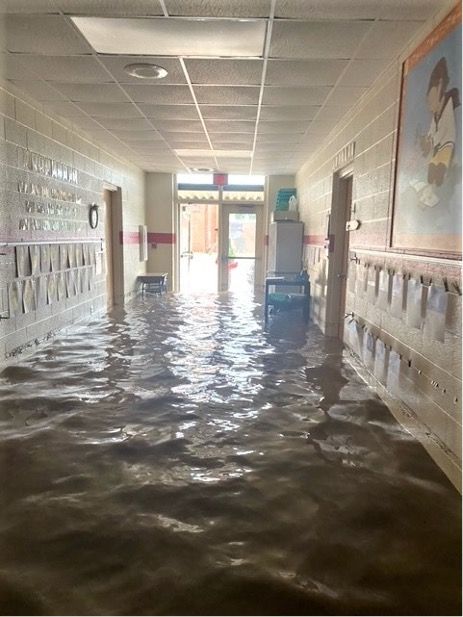
Matthew A Kraft
@matthewakraft.com
Professor of Education and Economics. Former high school humanities teacher. Proud papa & volunteer soccer coach. Reading as much as I can about climate change. www.matthewakraft.com
That is a key question from a cost-benefit perspective. We cannot fully nail it down b/c we lack a pure control group, but we estimate that 3:1 tutoring would need to raise student achievement by at least 0.07 SD to be more cost-effective than 1:1. This is far from guaranteed based on literature.
November 4, 2025 at 2:53 PM
That is a key question from a cost-benefit perspective. We cannot fully nail it down b/c we lack a pure control group, but we estimate that 3:1 tutoring would need to raise student achievement by at least 0.07 SD to be more cost-effective than 1:1. This is far from guaranteed based on literature.
Check out the full paper - it is a short and sweet 7 pages.
Many thanks to the good folks at Littera Education for their partnership and my amazing coauthor Ginny Lovison!
Many thanks to the good folks at Littera Education for their partnership and my amazing coauthor Ginny Lovison!
November 4, 2025 at 2:33 PM
Check out the full paper - it is a short and sweet 7 pages.
Many thanks to the good folks at Littera Education for their partnership and my amazing coauthor Ginny Lovison!
Many thanks to the good folks at Littera Education for their partnership and my amazing coauthor Ginny Lovison!
And finally, survey responses indicated that 1:1 tutoring online allowed tutors to:
4) create a space where a “kid feels special, valued, and safe to be themselves” and students “weren’t afraid to ask questions” and “weren’t afraid of being wrong.”
4) create a space where a “kid feels special, valued, and safe to be themselves” and students “weren’t afraid to ask questions” and “weren’t afraid of being wrong.”
November 4, 2025 at 2:32 PM
And finally, survey responses indicated that 1:1 tutoring online allowed tutors to:
4) create a space where a “kid feels special, valued, and safe to be themselves” and students “weren’t afraid to ask questions” and “weren’t afraid of being wrong.”
4) create a space where a “kid feels special, valued, and safe to be themselves” and students “weren’t afraid to ask questions” and “weren’t afraid of being wrong.”
Tutors reported 1:1 tutoring online was more successful because they could:
2) “build a better relationship with students”
3) “move at a faster pace” because there were “less distractions” and students were not “working at different paces”
2) “build a better relationship with students”
3) “move at a faster pace” because there were “less distractions” and students were not “working at different paces”
November 4, 2025 at 2:31 PM
Tutors reported 1:1 tutoring online was more successful because they could:
2) “build a better relationship with students”
3) “move at a faster pace” because there were “less distractions” and students were not “working at different paces”
2) “build a better relationship with students”
3) “move at a faster pace” because there were “less distractions” and students were not “working at different paces”
4️⃣ primary advantages of 1:1 tutoring online emerged from tutors’ open-ended responses.
Tutors commonly reported that individual tutoring allowed them to:
1) “personalize the lesson” and “customize the learning experience” so that each student “learned at his/her own pace”
Tutors commonly reported that individual tutoring allowed them to:
1) “personalize the lesson” and “customize the learning experience” so that each student “learned at his/her own pace”
November 4, 2025 at 2:31 PM
4️⃣ primary advantages of 1:1 tutoring online emerged from tutors’ open-ended responses.
Tutors commonly reported that individual tutoring allowed them to:
1) “personalize the lesson” and “customize the learning experience” so that each student “learned at his/her own pace”
Tutors commonly reported that individual tutoring allowed them to:
1) “personalize the lesson” and “customize the learning experience” so that each student “learned at his/her own pace”
My hot take - extrapolating from this study & other evidence:
Tutoring in small groups is harder in an online setting than in person.
If online tutoring is the best fit for your context, I would prioritize one-on-one.
If you want small groups, prioritize tutoring in person.
Tutoring in small groups is harder in an online setting than in person.
If online tutoring is the best fit for your context, I would prioritize one-on-one.
If you want small groups, prioritize tutoring in person.
November 4, 2025 at 2:30 PM
My hot take - extrapolating from this study & other evidence:
Tutoring in small groups is harder in an online setting than in person.
If online tutoring is the best fit for your context, I would prioritize one-on-one.
If you want small groups, prioritize tutoring in person.
Tutoring in small groups is harder in an online setting than in person.
If online tutoring is the best fit for your context, I would prioritize one-on-one.
If you want small groups, prioritize tutoring in person.
When we think about education & climate change, we often picture images of schools damaged by natural disasters made more frequent & severe by climate change.
Extreme weather events are an increasing threat, but the relationship between schools and climate change is much more complex and expansive.
Extreme weather events are an increasing threat, but the relationship between schools and climate change is much more complex and expansive.


July 14, 2025 at 8:01 PM
When we think about education & climate change, we often picture images of schools damaged by natural disasters made more frequent & severe by climate change.
Extreme weather events are an increasing threat, but the relationship between schools and climate change is much more complex and expansive.
Extreme weather events are an increasing threat, but the relationship between schools and climate change is much more complex and expansive.

